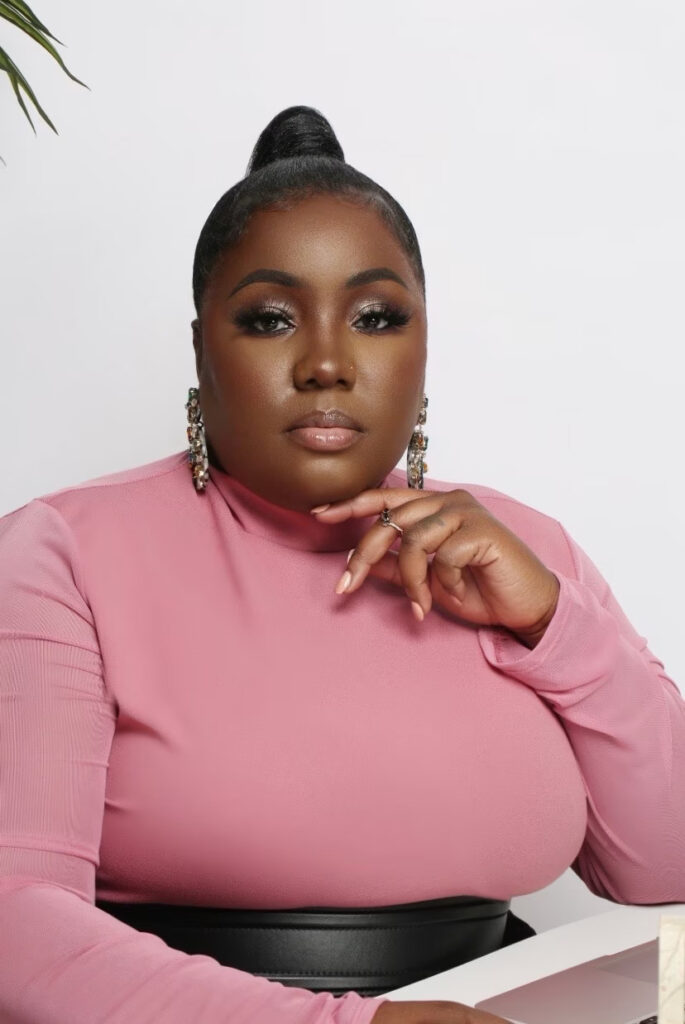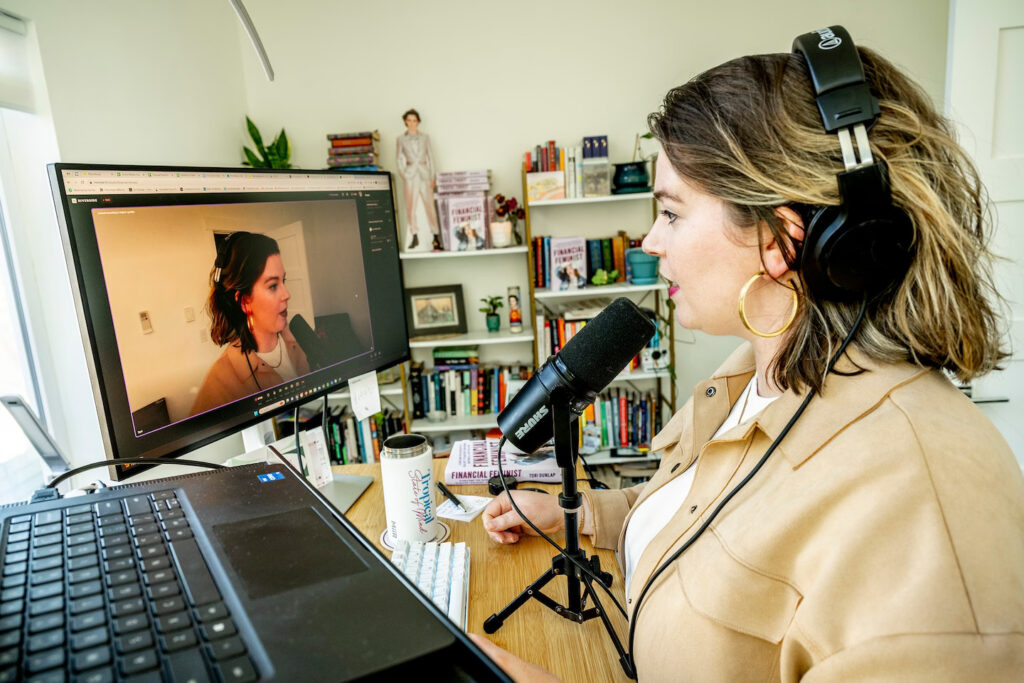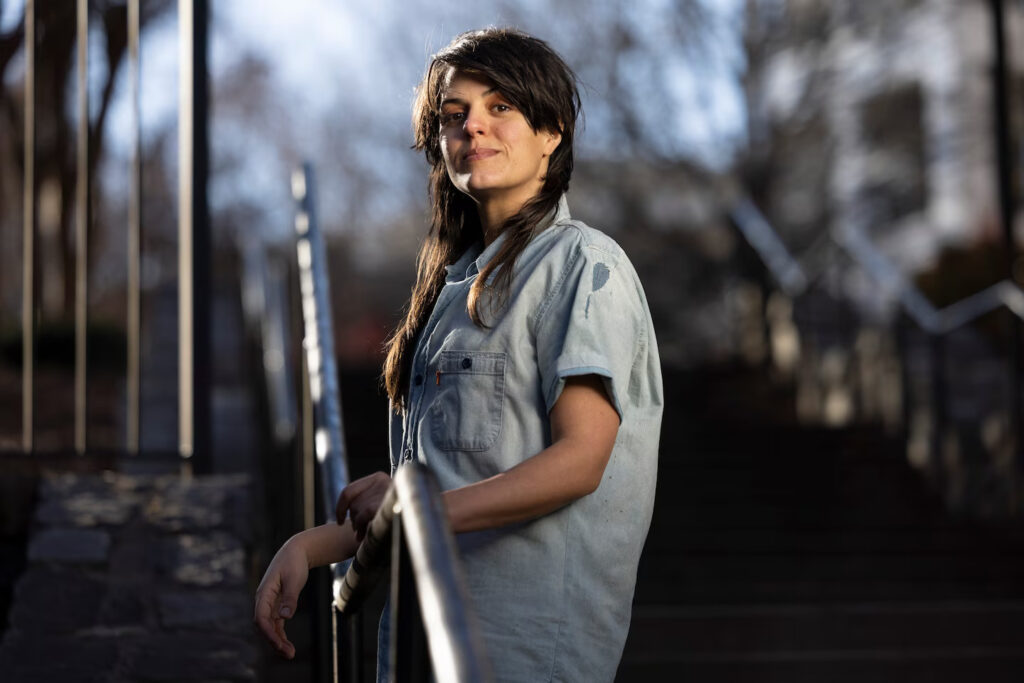These four women are bringing personal finance to the online community to encourage solidarity and drive transformation
Taylor Cohen faced financial difficulties leading to bankruptcy in 2019. In a bold move, she embraced a 30-day savings challenge discovered on Instagram in November 2022.
“I’ve cut out completely [spending] on dumb stuff for myself and others and started paying myself first,” says Cohen, 32, who has also created a few side gigs for herself, found a way to reduce her rent, and sold her car. She saved and invested $30,000 in one year. She has come a long way from the day she declared bankruptcy.
The challenge was marketed by Erika Kullberg, a lawyer and financial influencer who runs the @erikankullberg handle on Instagram. Kullberg is part of a growing number of influencers who are using social media to exclusively talk about personal finance. While some traditional personal finance advisers use confusing jargon, these “finfluencers” use their personal stories to connect with users and inspire them to learn more about personal finance. They repackage recognized financial advice in quick, free, bite-sized pieces of information spoken in an empathetic tone that seems to resonate with a growing population of people.
“The username ‘The Broke Black Girl,’ raised eyebrows for some,” said Dasha Kennedy, another successful finfluencer who was an accountant before she turned to financial activism. “But it was a deliberate choice to be genuine and vulnerable with my community. This was not just a persona.”

Dasha Kennedy provides financial advice to hundreds of thousands through her Instagram account TheBrokeBlackGirl. (Mena Darre)
Influencer culture traces its origins back to the early 2000s, but its influence has surged dramatically. Pew Research Center reports that in 2021, 78 percent of women utilized at least one social media platform, compared to 66 percent of men.
“It’s natural that people would turn to online personalities for all sorts of guidance [from] grooming [to] financial planning,” says Christine Benz, director of personal finance and retirement planning for Morningstar, a financial services firm. “I don’t think the industry has done itself any favors by making it really complicated [to get] face-to-face advice.”
Financial advice from a certified financial planner could be based on an hourly fee, a flat fee, or a combination, according to the CFP Board, an organization that sets the standards for the certified financial planner certification. Depending on the complexity of an individual’s finances, overall fees can range from hundreds of dollars to thousands.
For women, the recurring theme of being overlooked or misunderstood by financial advisers has persisted. In a 2009 report entitled “The Female Economy” published in the Harvard Business Review, women expressed encountering “a lack of respect, poor advice, contradictory policies, one-size-fits-all forms, and a seemingly endless tangle of red tape that leaves them exhausted and annoyed” when dealing with the financial services sector.
Delyanne Barros, better known as Delyanne the Money Coach on social media, has heard similar stories today. Women have shared experiences of financial advisers talking down to them in meetings, and some have described being ignored while advisers direct their conversations to their husbands, even though the women had arranged the appointment.

Delyanne Barros, a digital nomad who moved to Lisbon, has a financial advice business called Delyanne the Money Coach. (Emanuele Siracusa)
Many finfluencers aim to assist their followers by starting with the basics. Barros shares videos and graphics about investing across various social media platforms. She has also created a beginner’s investing course called “Slay the Stock Market” to elucidate fundamental investing terms. Other finfluencers offer resources like customizable budget plans that users can download.
Kennedy emphasizes that the language of personal finance can be challenging to navigate. Despite her background as an accountant, Kennedy faced a knowledge gap during her own divorce in 2014. When she established the Facebook group “The Broke Black Girl,” it amassed 60,000 members within a year. Currently, she has over 391,000 followers on Instagram, Facebook, and X (formerly Twitter). Her advice is exclusively tailored to address systemic issues that Black women encounter, including the gender and racial pay gap, as well as racial discrimination in the workplace and financial education.
“Investing 101 to [professionals] is not investing 101 to the average person,” notes Tori Dunlap, founder of the financial feminism and money education platform Her First $100K, boasting 2.4 million followers on TikTok. Dunlap highlights that people often need reminders, such as funding the newly opened account, like a workplace 401(k), and selecting investments. During a panel last year, she observed terms like “asset allocation” and “portfolio rebalancing” being thrown around as if new investors would automatically understand. According to Dunlap, this discussion seemed more like investing 102; in her experience, individuals typically ask simpler questions, such as which account to open and how to go about it.

Tori Dunlap, 29, is the founder of Her First $100K, a financial education company aimed at young women, and the author of the book “Financial Feminist.” (Stuart Isett for The Washington Post)
Barros rebranded the term “financial independence, retire early” (FIRE) to “financial independence, relax early” to challenge the notion that retirement is solely for older individuals. She considers this adjustment a marketing strategy but hopes the new phrase motivates her over 556,000 followers, much like it inspired her. In 2021, she left her lucrative role as a labor and employment attorney to become a full-time entrepreneur, fulfilling her goal of relocating to Lisbon in May 2023, which she had shared with her followers.
This influencer-driven approach to personal finance advice appears to be effective. Kullberg reports that the approximately 200,000 participants in her savings challenge collectively saved over $200 million. These four finfluencers receive emails and social media notifications from followers celebrating their successes. Followers often seek guidance on budgeting, expense tracking, retirement investment, and securing their children’s financial futures. Social media platforms are breaking down the taboo surrounding money-related discussions.
Kullberg, who initially did not plan to join TikTok or create video content, committed to assisting others once she personally became debt-free, having paid off $200,000 in student loans. She emphasizes the importance of “being rich rather than looking rich” to avoid lifestyle inflation and advocates for generating income through side hustles. Known for urging followers to “read the fine print,” she encourages scrutiny of documents, warranties, and tickets to understand eligibility for reimbursements.
Kullberg acknowledges that social media is currently the prevailing platform, recognizing that this landscape might evolve in five or ten years. Nevertheless, she asserts that her mission will remain unchanged even if the social media landscape undergoes transformations.


